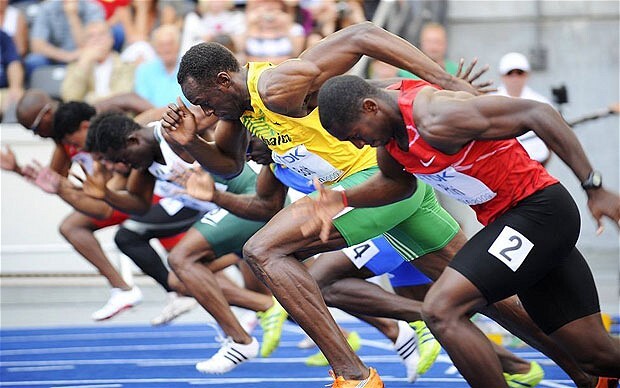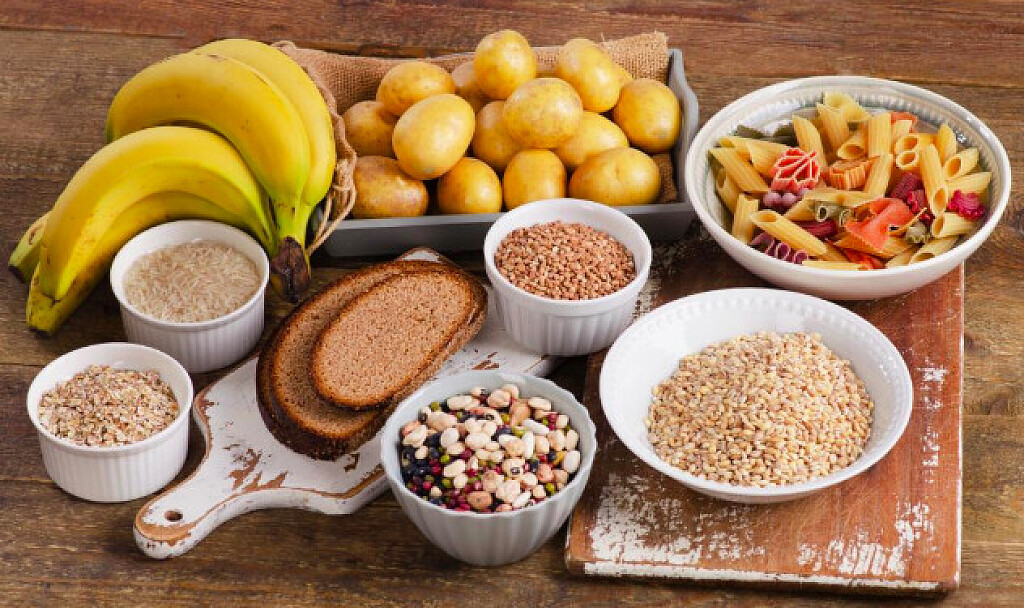Running News Daily
Running News Daily is edited by Bob Anderson. Send your news items to bob@mybestruns.com Advertising opportunities available. Train the Kenyan Way at KATA Kenya and Portugal owned and operated by Bob Anderson. Be sure to catch our movie A Long Run the movie KATA Running Camps and KATA Potato Farms - 31 now open in Kenya! https://kata.ke/
Index to Daily Posts · Sign Up For Updates · Run The World Feed
The best nutrition for competitive runners
Competitive runners like to set personal bests, if not win races. Many factors impact how well you can run. Some factors are out of your control, such as heat, humidity, wind, altitude, water conditions, as well as the time of the event, amount of time between events, and perhaps jet lag. But nutritional factors are in your control, including what, when, and how much you eat. Simply put, to run at your best, you need to know how to eat well enough to fight fatigue and be strong to the finish.
To address the how to eat to run at your best issue, I looked to the highly respected sports nutritionist Louise Burke PhD. researcher at Australian Catholic University in Melbourne. Here are some key points from her journal article on Nutritional approaches to counter performance constraints in high-level sports competition. This information might inspire you to consult with a registered dietitian/ board-certified specialist in sports dietetics (RD CSSD) who can help you optimize your sports diet.

Eating
• Carbohydrate is a fundamental source of energy for both your muscles and your brain. Carbohydrate in the blood, known as blood glucose, fuels the brain so it can focus on—and respond quickly to—the task at hand. To optimize athletic performance, you want to maintain adequate blood glucose levels during exercise.

• Blood glucose gets supplied from your liver as well as from the banana, toast or other form of sugar or starch (carb) you eat before and/or during exercise. Some runners avoid pre- and during-exercise fuel, fearing it will create intestinal distress. The better path is to train your gut to tolerate foods and fluids. During training sessions, experiment with a variety of carbs (dried pineapple, granola bar, diluted juice) and/or a variety of flavors and brands of commercial products (sports drinks, gels, chomps in), so you can learn what settles best. Choosing a variety of carbohydrates can increase the rate they are absorbed and might reduce the risk of GI distress. Having a well-tested fueling plan is helpful.
• Training enhances your ability to burn fat. Given fat stores are essentially limitless, a fat-adapted endurance runner (theoretically) should be able to perform very well without having to eat much. Less food could reduce intestinal upset. Sounds good, but this theory doesn’t always work. Research shows that athletes on a high fat, very low carb keto diet can maintain their baseline performance, but during real-life high intensity competitive endurance events, abundant evidence indicates their performance declines. That’s in part because burning fat, as compared to burning carb, requires more oxygen. When keto athletes attempt, let’s say, a high intensity sprint to the finish, the lack of adequate oxygen leads to reduced power.
Brain function
• As a runner, you need a well-fed brain, to help you concentrate, focus, and make wise decisions. A well-fed brain can also help keep you motivated to run at a hard pace. To feed your brain, you want to embark upon exercise being well fed, with blood sugar in a normal range (blood glucose drops overnight) and not be fasted and running on empty.
• Caffeine is known to reduce the brain’s perception of pain, effort, and fatigue (even in runners who regularly consume coffee). The recommended dose is 1.5-3 mg per pound of body weight (3-6 mg/kg) but one size does not fit all. Experiment to find the dose that’s best for your body!
• Runners consume caffeine via gels, caffeinated energy bars, pre-workout supplements, caffeine pills, and coffee. The problem with coffee is the variability of the caffeine content, which makes it hard to identify a specific dose.
• Some energy enhancers do not need to be absorbed into the body to offer beneficial effects. For example, simply rinsing the mouth with a sugar solution/sports drink (and spitting it out) stimulates reward centers in the brain, allowing you to run harder.
• With some substances, the mouth does not have enough sensors, so you need to ingest the substance to get performance benefits. For example, drinking a small amount of a bitter substance such as quinine can trigger a beneficial “flight or fight” when taken immediately before a short, intense effort, such as a 30-second sprint.
• Rinsing the mouth every 5 to 10 minutes with a menthol-containing solution creates a perceived cooling effect that can help to increase power or speed during prolonged exercise in the heat. But be careful. If you feel cooler—but actually are not cooler, you might over-extend yourself and end up slowing down prematurely.
• Anti-cramping agents such as pickle juice or spicy tastes might be helpful for runners who experience muscle cramps. These pungent tastes are thought to “distract” the nerves involved with the cramping muscle and reduce the severity of the cramp. (More research is needed.)
Fluids
• You want to be sure you are optimally hydrated before you start running. Your first morning urine should be light-colored, not dark and concentrated.
• Whether programmed drinking (according to a plan) is better than drinking as desired, according to your thirst, depends on your sport. For example, a marathoner, as compared to a 10K runner, can develop a larger mismatch between sweat losses and fluid intake.
• The suggested goal is to lose <2% of your body weight during exercise (3 lbs for a 150-lb runner). In lab-based research, a loss of >3% of body weight (4.5 lbs) is linked to reduced performance. In real life, many runners’ motivation to win over-rides the negative effects of being under-hydrated. Questions remain unanswered: Could underhydrated runners have performed better If they were better hydrated? Or does being lighter due to dehydration offer an advantage? Stay tuned. Sports nutrition is an evolving science.
by Colorado Runner
Login to leave a comment




